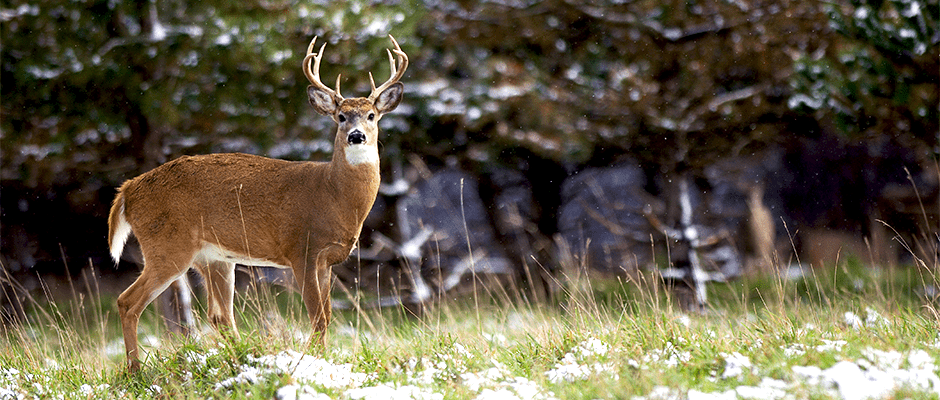Share this article
Illinois Chapter opposes supplemental deer-feeding bill
The Illinois Chapter of The Wildlife Society (ICTWS) has opposed a state bill that would amend the state’s Wildlife Code to allow supplemental feeding of deer outside hunting season.
Illinois banned supplemental feeding of deer in 2002 after the discovery of chronic wasting disease in the state. Supplemental feeding stations have been shown to facilitate the spread of CWD, a fatal neurological disease that causes brain degeneration, emaciation and abnormal behavior in deer and other cervids.
The proposed legislation, SB2493, was first introduced into the state Senate in January. ICTWS sent a letter in April to the Senate Agriculture Committee cautioning against the bill.
“We urge you to oppose SB2493,” ICTWS said in the letter, “as it could result in increased risk to our state’s wildlife populations by undermining efforts to prevent the spread of disease.”
In addition to facilitating the spread of CWD, the letter explains that feeding stations would also have consequences for humans, pets and other wildlife species. These include the potential spread of Lyme disease, mange and tuberculosis in deer and other exposed animals.
The bill passed the state Senate and was introduced into the House on May 2.
In the House, members proposed an amendment which calls for a minimum five-year study to determine the health effects of supplemental feeding on deer populations. Study areas would be limited to the southern half of the state, the amendment says, and “supplemental deer feeding shall be permitted on private land in the geographic boundaries established for the study.”
In response, ICTWS sent a second letter urging members of the Illinois Agriculture and Conservation Committee to oppose both the bill and the amendment. The letter explains that existing studies already demonstrate that feeding stations increase disease transmissions and thus would threaten the state’s healthy deer population.
House Amendment 002 was proposed on May 21 and would provide for different parameters for the supplemental feeding study. These include prohibiting supplemental feeding during the first year of the study. In each subsequent year, feeding could occur from Feb. 1 to Aug. 15. The amendment would also require the study to take place across the state and permit feeding on private lands with the landowners’ permission. Researchers would be barred from using public lands as supplemental feeding study areas.
The ICTWS included TWS’ position statement on Baiting and Supplemental Feeding of Game Wildlife Species with both letters. The statement supports ICTWS’ concerns that feeding stations, as proven by research, facilitate the spread of disease among wildlife and human populations.
TWS chapter and section efforts to advance science-based wildlife conservation are supported by the Conservation Affairs Network. It allows TWS members and units to coordinate policy activities, share resources, and unify TWS’ message across local, state, and national levels.
Header Image: ©Michigan DNR








